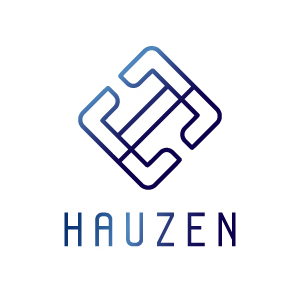Hong Kong – Landmark Ruling Involving Decentralised Autonomous Organisations (DAOs).
On 12 August 2024, the High Court of Hong Kong handed down its Reasons for Decision behind its ruling on 25 April 2023 in HCA 749/2022 (Mantra Dao Inc. & Riodefi Inc. v. Mullin & Others ([2024] HKCFI 2099)), which concerns a dispute between Mantra DAO Inc., RioDeFi Inc. and several defendants regarding the ownership and management of a decentralized autonomous organization (“DAO”) project in the cryptocurrency space.
In this article, we summarise the key points of the Court’s Reasons for Decision. Click here to read the full Reasons for Decision.
Background of HCA 749/2022
The dispute revolved around the true ownership, management and control of a DAO finance platform project known as the MANTRA DAO project (“Project”).
The Plaintiffs’ position
The Plaintiffs were Mantra DAO Inc. and RioDeFi Inc. They claimed that the Project was initially conceived by them in May 2020. They also claimed that they were instrumental in developing the Project, securing initial investments, and establishing its operational framework.
The Plaintiffs claimed that since January 2021, the Defendants, who were responsible for day-to-day management, began to act independently. The Defendants treated the Project as their own and failed to provide financial reports to the Plaintiffs. The Plaintiffs accused some of the Defendants of misappropriating assets from a cryptocurrency account (“Hex Account”) belonging to the 1st Plaintiff.
The Plaintiffs sought various interim injunctive reliefs against the Defendants but subsequently abandoned most of them. The only remaining relief sought was an order requiring the disclosure of accounts relating to the operation of the Project, to enable the Plaintiffs to monitor the Project’s operation and development pending trial (“Accounts Disclosure Order”).
The Defendants’ position
The Defendants argued that the Project should not be owned or controlled by any single entity but governed by the holders of digital tokens known as “OM Tokens”, as outlined in the Governance Agreement governing the Project. They asserted that:
- The DAO structure empowered token holders to be ultimate decision-makers via smart contracts on the blockchain infrastructure of the Project.
- The Project lacked legal personality. Legal entities (i.e a Seychelles incorporated foundation (“Foundation”) and the 1st Plaintiff) were established solely to manage assets for token holders. The Foundation was governed by members of its Council, who were granted authority to act on behalf of the Project and the OM Token holders.
- In view of the above, assets in the Hex Account were not beneficially owned by the Plaintiffs. The Defendants maintained that the operations of the Project were transparent, claiming that the Plaintiffs were informed about financial transactions, including withdrawals from the Hex Account, which were authorized by the Plaintiffs.
Court’s Findings
On 25 April 2023, Mr Justice Lok granted an interim order, inter alia, requiring the 1st to 4th Defendants to disclose accounts relating to the operation of the Project to the Plaintiffs (i.e. the Accounts Disclosure Order).
In passing, the Court commented that cryptocurrency trading is a new, novel and innovative business. Hong Kong courts and courts in other jurisdictions have little experience in dealing with such kind of disputes. Courts may not be familiar with the modius operandi and the structures for the operation of such kind of business.
Notwithstanding this, the Court focused on the balance of convenience (a factor relevant in granting an interim injunction order) and found that the balance of convenience favoured the granting of the Accounts Disclosure Order. The Court:-
- Found that damages would be insufficient if the application were denied, as the Plaintiffs needed visibility into the Project’s financial operations to substantiate their claims.
- Found that the Project’s Councillors had a duty to keep proper account and to account to the OM Token holders. Therefore, contrary to the Defendants’ arguments, requesting the disclosure of accounts should not cause any additional or significant hardship on the Defendants.
- Dismissed the Defendants’ concerns about potential harm from disclosing confidential information, suggesting that proper undertakings could mitigate these risks.
Conclusion
This ruling reflects the importance of ensuring transparency in the management of cryptocurrency projects and protecting the interests of stakeholders involved in DAOs, notwithstanding the novelty of DAOs or the anonymity inherent with DAOs. The Court’s decision also reflects a growing recognition of the legal complexities surrounding blockchain technology and decentralized finance.
We frequently represent project sponsors, operators, participants and investors in DAOs and other blockchain projects in pre-transaction review, structuring advice, disputes over transparency or loss of investment, and investigations by regulators.
To learn more about the legal implications surrounding a cryptocurrency business, contact us today.







